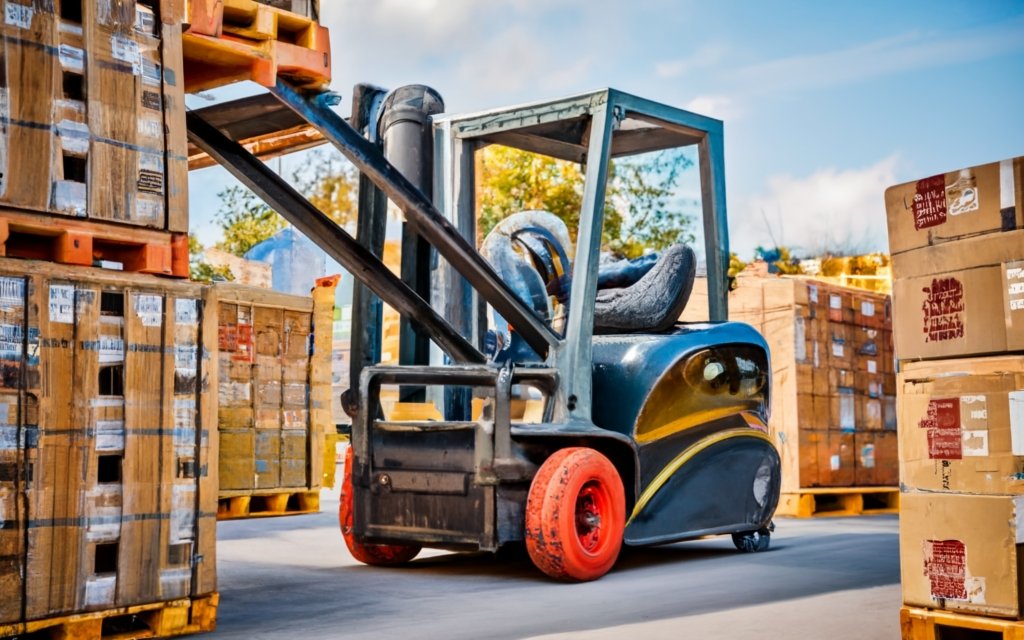Bangladesh is one of the fastest-growing economies in Asia, with a large population and a huge demand for various products. China, as the world’s largest exporter, is a major source of goods for Bangladeshi importers. However, shipping from China to Bangladesh is not a simple task. There are many challenges and factors that need to be considered before you can successfully import goods from China to Bangladesh. In this article, we will explain some of the key aspects of shipping from China to Bangladesh.
Understanding the challenges of international shipping

Shipping from China to Bangladesh involves crossing international borders, which means that you have to deal with different laws, regulations, standards, cultures, languages, currencies, and time zones. Some of the common challenges that you may face when shipping from China to Bangladesh are:
- Finding reliable suppliers in China who can provide quality products at competitive prices and meet your delivery deadlines
- Negotiating contracts and terms of trade with your suppliers, such as payment methods, incoterms, warranties, and dispute resolution
- Obtaining the necessary documents and certificates for your products, such as invoices, packing lists, bills of lading, certificates of origin, quality certificates, etc.
- Complying with the customs and import regulations of both China and Bangladesh, such as tariffs, taxes, duties, quotas, licenses, permits, etc.
- Choosing the best shipping method and route for your products, depending on your budget, time frame, product type, volume, weight, etc.
- Calculating the total shipping costs, including freight charges, insurance fees, customs fees, port charges, etc.
- Managing the risks and uncertainties of international shipping, such as delays, damages, losses, thefts, accidents, etc.
- Communicating and coordinating with various parties involved in the shipping process, such as suppliers, freight forwarders, customs brokers, carriers, agents, etc.
Choosing the right shipping method

There are three main ways to ship goods from China to Bangladesh: air freight, sea freight, and express delivery. Each method has its own advantages and disadvantages that you need to weigh carefully before making a decision. Here is a brief overview of each method:
Air freight
Air freight is the fastest and most reliable way to ship goods from China to Bangladesh. It usually takes only a few days to deliver your goods by air. However, air freight is also the most expensive way to ship goods from China to Bangladesh. It is suitable for small volumes of high-value or urgent goods that need to reach their destination quickly and safely.
Sea freight
Sea freight is the most economical way to ship goods from China to Bangladesh. It can handle large volumes of low-value or non-urgent goods that do not have strict delivery deadlines. However, sea freight is also the slowest way to ship goods from China to Bangladesh. It can take several weeks or even months to deliver your goods by sea. Moreover, sea freight is subject to various risks and uncertainties, such as weather conditions, congestion, strikes, piracy, etc.
Express delivery
Express delivery is a hybrid way to ship goods from China to Bangladesh. It combines air freight and road transportation to deliver your goods faster than sea freight but cheaper than air freight. Express delivery is suitable for small or medium volumes of time-sensitive or perishable goods that need to reach their destination within a week or two.
Calculating shipping costs
The total cost of shipping from China to Bangladesh depends on many factors, such as:
- The shipping method and route you choose
- The weight and volume of your goods
- The type and value of your goods
- The origin and destination ports or airports
- The incoterms you agree with your supplier
- The customs fees and taxes you have to pay in both countries
- The insurance fees and other surcharges you incur
To get an accurate estimate of your shipping costs, you need to contact different shipping providers and compare their quotes. You can also use online tools to get an idea of the shipping rates and transit times for different shipping methods and routes.
Tips for minimizing shipping costs

Shipping from China to Bangladesh can be quite expensive, especially if you do not plan ahead and optimize your shipping strategy. Here are some tips that can help you reduce your shipping costs:
- Choose the most suitable shipping method and route for your goods
- Negotiate the best terms of trade and payment with your supplier
- Consolidate your shipments with other importers to share the container space and freight costs
- Optimize your packaging and labeling to reduce the weight and volume of your goods.
- Avoid peak seasons and holidays when the shipping demand and prices are high
- Book your shipments in advance to secure the space and rates
- Declare your goods accurately and honestly to avoid penalties and delays
- Apply for preferential tariffs or exemptions if your goods qualify for them
- Insure your goods against potential risks and losses
Customs and import regulations
One of the most important and challenging aspects of shipping from China to Bangladesh is complying with the customs and import regulations of both countries. Customs clearance is a mandatory process that involves inspecting, verifying, and taxing your goods before they can enter or leave a country. If you fail to comply with the customs requirements, you may face delays, fines, confiscations, or even legal actions.
To avoid any problems with customs clearance, you need to prepare the following documents and certificates for your goods:
- Commercial invoice: A document that shows the details of your transaction, such as the seller, buyer, product description, quantity, price, terms of trade, etc.
- Packing list: A document that shows the details of your packaging, such as the number, weight, volume, marks, and contents of each package.
- Bill of lading: A document that shows the details of your shipment, such as the carrier, origin, destination, consignee, etc. It also serves as a receipt and a contract of carriage.
- Certificate of origin: A document that shows the origin country of your goods. It may be required to prove the eligibility for preferential tariffs or exemptions under certain trade agreements.
- Quality certificate: A document that shows the quality standards or specifications of your goods. It may be required to prove the conformity or compliance with certain regulations or requirements.
- Other documents or certificates: Depending on the type and value of your goods, you may need to provide other documents or certificates, such as health certificate, phytosanitary certificate, inspection certificate, import permit, etc.
You also need to pay the customs fees and taxes that apply to your goods, such as:
- Tariffs: The taxes levied on imported goods based on their classification, origin, and value. The tariff rates vary depending on the product category and the trade agreement between China and Bangladesh.
- Value-added tax (VAT): The tax levied on the value added to goods or services at each stage of production or distribution. The VAT rate in Bangladesh is 15% for most goods and services.
- Supplementary duty (SD): The tax levied on certain imported goods that are considered luxury or harmful to health or environment. The SD rate ranges from 10% to 350% depending on the product category.
- Advance income tax (AIT): The tax levied on imported goods as a prepayment of income tax. The AIT rate is 5% for most goods.
You can check the customs fees and taxes for your goods using online tools like Bangladesh Customs Tariff or Dutycalculator.
Finding reliable shipping providers

Shipping from China to Bangladesh involves many parties and processes that require professional knowledge and experience. Unless you have enough resources and expertise to handle everything by yourself, you may need to hire reliable shipping providers who can assist you with various aspects of shipping, such as:
- Freight forwarders: Companies that arrange the transportation of your goods from one place to another. They can help you choose the best shipping method and route, book the space and rates, prepare the documents, handle the customs clearance, and coordinate with other parties involved in the shipping process.
- Customs brokers: Companies or individuals that act as intermediaries between you and the customs authorities. They can help you comply with the customs regulations, prepare the documents, pay the fees and taxes, and clear your goods through customs.
- Carriers: Companies that provide the actual transportation of your goods by air, sea, or road. They can help you deliver your goods safely and timely to their destination.
- Agents: Companies or individuals that represent you or your shipping provider in a specific location. They can help you communicate and coordinate with local parties, such as suppliers, carriers, customs brokers, etc.
Tracking your shipments
Once you have shipped your goods from China to Bangladesh, you need to track your shipments to ensure that they are on the right track and arrive at their destination on time. Tracking your shipments can help you:
- Know the exact location and status of your goods at any time
- Identify and resolve any issues or problems that may occur during the shipping process.
- Plan and prepare for the arrival and delivery of your goods
- Provide updates and information to your customers or partners
To track your shipments, you can use online tools like 17track, Trackingmore, or Parcel Monitor to access the tracking information from various carriers and platforms. You can also contact your shipping provider or agent to get the latest updates and details about your shipments.
Dealing with delays and other issues
Despite your best efforts and planning, shipping from China to Bangladesh may still encounter some delays and other issues that are beyond your control. Some of the common causes of delays and other issues are:
- Bad weather conditions, such as storms, floods, fog, etc.
- Congestion or breakdowns at ports, airports, roads, etc.
- Strikes or protests by workers, unions, or groups
- Accidents or incidents involving your goods or carriers.
- Errors or mistakes in documents or data
- Changes or updates in customs or import regulations
- Disputes or conflicts with suppliers, shipping providers, customs authorities, etc.
To deal with delays and other issues, you need to be proactive and flexible. You need to:
- Anticipate and prepare for possible risks and scenarios
- Communicate and coordinate with all the parties involved in the shipping process.
- Seek solutions and alternatives to overcome the challenges
- Negotiate and compromise when necessary
- Claim compensation or insurance if applicable
Conclusion
Shipping from China to Bangladesh is a complex and challenging process that requires careful planning and execution. You need to understand the challenges of international shipping, choose the right shipping method, calculate the shipping costs, comply with the customs and import regulations, find reliable shipping providers, track your shipments, and deal with delays and other issues.


